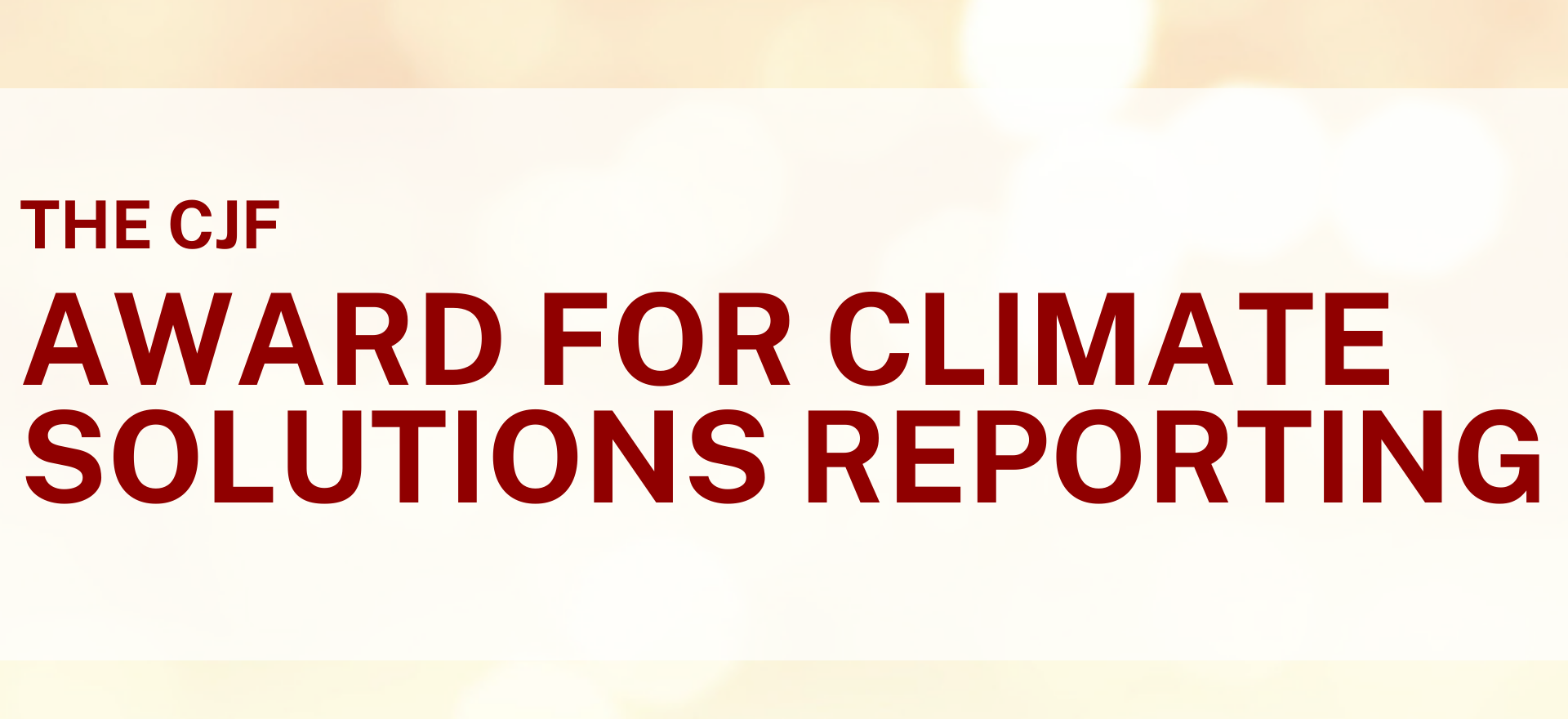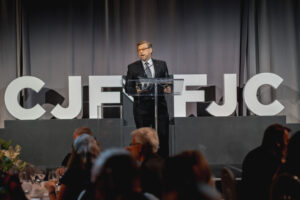The CJF Award for Climate Solutions Reporting
ABOUT THE AWARD
Climate change is one of the defining challenges of our time. The impacts of global warming and extreme weather events are already being felt in Canada and are forecast by scientists to become more severe and more frequent. Beyond environmental and physical impacts, climate change is also expected to have significant economic and social impacts.
Climate change demands to be a constant and significant part of Canadian conversation and the media has a vital role to play in providing accurate, contextual information that creates the foundation for civic discourse about its scope and potential solutions being considered or implemented. The CJF Award for Climate Solutions Reporting recognizes excellence in reporting on what is being done in Canada and beyond to address the impact and threat of climate change – the policies, practices and people that could potentially be part of the solution to this global crisis.
The CJF Award for Climate Solutions Reporting celebrates innovative work done by Canadian journalists to shine a light on adaptive solutions being tested and implemented to address the environmental challenges affecting the world today and in the future. The award will aim to inspire broader, more prescriptive coverage of the climate crisis we all face by raising awareness about the challenges themselves and the work being done to meet them.
Judges will consider the following criteria in adjudicating this award:
- How does this work highlight responses and solutions to climate change? Does it shift the narrative from the problem to solutions that empower positive change?
- Does the application describe the creative reporting techniques that were used to explain complicated elements in terms an average reader would understand?
- How does the work demonstrate the success, significance, and/or importance of the specific climate solution being featured?
- What evidence is there to show that the solution is working? In what ways is it not or might it not? What metrics are used and why in assessing this solution?
- What data supports the problem and the solution?
- Is the overall climate data cited accurate and is there sufficient evidence of verification? Is there a sufficient scope and diversity of sources cited?
- Judges will note that false balance can be the enemy of accuracy and truth in reporting on climate change. Trying to balance scientific consensus on climate change with views from climate deniers or others who disagree with scientific findings risks misleading news audiences.
- Is the climate research and data presented in a relatable, understandable manner that news audiences can easily follow?
- Is the work well-written, and does it respect the principles of good journalism?
FORM OF THE AWARD
The award recipient will receive a $10,000 prize.
ELIGIBILITY
Climate change is a story that matters in many spheres – an all-encompassing issue with a wide scope that can include not just the environment but also science, health, the economy, business, public policy, migration, politics and people on a local, national and global scale.
This award will be presented to a working journalist or team of journalists (employed full-time or freelance) who have been judged to have done the most to shine a spotlight on climate change and innovative solutions in Canadian print, broadcast or online news reporting in 2025.
Entries involving more than one contributor are welcome and will be judged as a single submission. Submissions are welcome in the following formats: article, column, online piece, editorial, op-ed, radio program, podcast, television program or documentary film.
Applications for 2026 are now closed.
________________________________________________
IN PARTNERSHIP WITH

About Intact Financial Corporation
Intact Financial Corporation is the largest provider of Property & Casualty insurance in Canada, a leading specialty lines insurer with international expertise, and a leader in commercial lines in the U.K. and Ireland. The Company has approximately 30,000 employees delivering best-in-class service through over 350 offices across Canada, the U.S., the U.K. and Ireland.
Intact exists to help people, businesses and society prosper in good times and be resilient in bad times. Our social impact and climate priorities sit alongside our financial goals and are embedded in the Company’s strategic roadmap. Intact has established and is delivering on ambitious objectives to be a leader in building resilient communities, achieving Net Zero by 2050 and halving our operations emissions by 2030.






